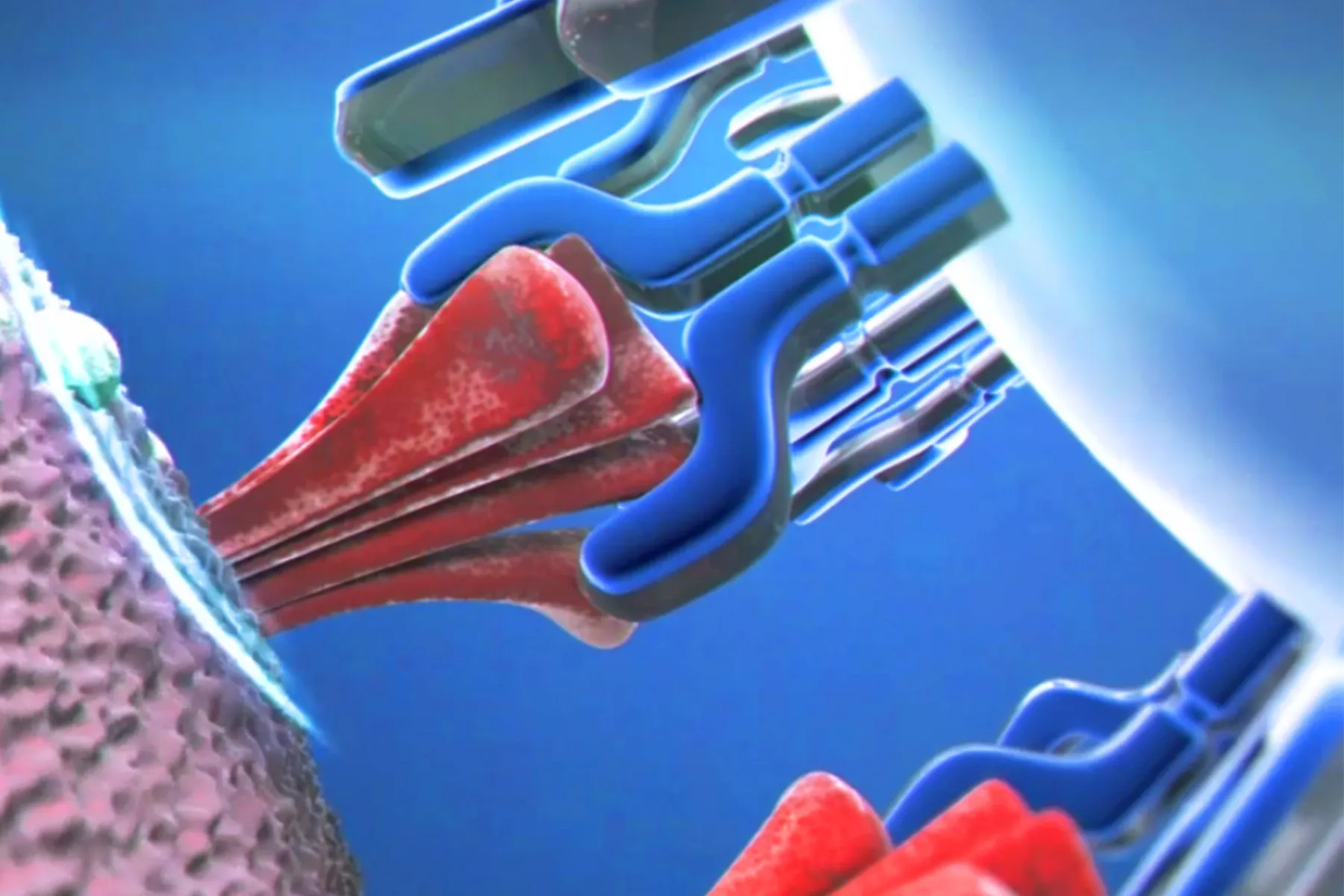Hypothyroidism In Pregnancy: Causes, Symptoms, And Management
Hypothyroidism affects 2-3% of all pregnant women. Learn about the causes, symptoms, and management of hypothyroidism in pregnancy to ensure a healthy pregnancy and baby.
Did you know that women are nearly ten times more likely to suffer from thyroid disease than men? Thyroid disease remains the second most common endocrine disorder affecting many women in their reproductive years. This condition, particularly hypothyroidism in pregnancy, can contribute to higher rates of infertility and complications. However, with the right treatment and care, women with hypothyroidism can still have healthy and successful pregnancies.
What Is Hypothyroidism?
The thyroid gland is a part of the endocrine system which is a small, butterfly-shaped structure placed at the front of the neck. It secretes many hormones, including Triiodothyronine (T3), Thyroxine (T4), and Thyroid-Stimulating Hormone (TSH). Such hormones play a substantial role in regulating metabolism, heart rate, and nervous system functions. They also help in fetal brain development, regulate maternal thyroid function, and support overall growth of the baby in the womb.
Hypothyroidism occurs when the thyroid gland fails to produce an adequate amount of these hormones, resulting in a slowdown of the body's metabolism. The leading cause of hypothyroidism is commonly attributed to an autoimmune condition known as Hashimoto's thyroiditis, which involves inflammation of the thyroid gland.
Hypothyroidism Symptoms In Women During Pregnancy
Hypothyroidism in pregnancy can lead to symptoms, including:
-
Feeling tired despite getting enough sleep.
-
Sudden weight gain
-
Cold Intolerance (feeling cold more often even in warm weather)
-
Slowed Heart Rate
-
Muscle Aches and Weakness
How Can Hypothyroidism Affect Pregnancy?
Hypothyroidism in pregnancy is much more common than most of you think—it occurs in around 2–3% of all pregnancies. It can significantly impact pregnancy, affecting both the mother and the developing baby. Here's how:
Risks To The Mother
If left untreated, hypothyroidism can lead to complications that affect the mother including:
-
Gestational Hypertension: Hypothyroidism during pregnancy can increase the risk of developing high blood pressure, leading to gestational hypertension.
-
Preeclampsia: Hypothyroidism increases the risk of developing preeclampsia, a condition characterised by high blood pressure and damage to organs.
-
Anemia: Hypothyroidism can contribute to iron-deficiency or anemia during pregnancy, which may affect the mother's overall health and well-being.
Risks To The Baby
During the first months of pregnancy, the baby relies on the mother's thyroid hormones. These hormones are essential to the normal development and growth of the baby's brain. It has long-term effects on the baby including:
-
Impaired neurodevelopment: Insufficient thyroid hormone levels in the mother can impact fetal brain development, leading to cognitive and developmental issues in the baby.
-
Low birth weight: Hypothyroidism during pregnancy can contribute to reduced fetal growth, resulting in low birth weight.
-
Premature birth: Hypothyroidism increases the risk of delivering prematurely, which can pose various health challenges for the baby.
Causes Of Hypothyroidism In Pregnancy
Hypothyroidism during pregnancy has several causes, such as:
-
Autoimmune Disorders: Hashimoto's thyroiditis is the most common cause of hypothyroidism, and it's often an autoimmune disorder.
-
Iodine Deficiency: Iodine is an essential nutrient that is required for the production of thyroid hormones. If a pregnant woman's diet is deficient in iodine, it can lead to hypothyroidism.
-
History of thyroid surgery: Women who have had their thyroid gland surgically removed are at risk of developing hypothyroidism during pregnancy.
Managing Hypothyroidism In Pregnancy
Hypothyroidism can lead to many complications, but early detection and management help ensure a healthy pregnancy. Here’s how you can stay on track:
Monitor Thyroid Levels Periodically: Thyroid hormone levels should be checked regularly during pregnancy. Routine tests for TSH and FT3/FT4 ensure your levels are within the safe range, promoting your health and the baby’s growth.
Focus On Hormone Balance:Regular thyroid level monitoring and following your doctor's prescribed medication plan are essential for maintaining hormonal balance during pregnancy. This helps lower the risk of preterm birth and ensures healthy development for the baby.
How Is Thyroid Function Tested?
Thyroid function is tested through blood tests that measure key hormones like TSH (Thyroid Stimulating Hormone), T3 (Triiodothyronine), and T4 (Thyroxine). These tests are essential for diagnosing and monitoring hypothyroidism during pregnancy:
Thyroxine (T4):
In cases of hypothyroidism, it is common for the serum levels of thyroxine (T4) to fall below the normal reference range, which is typically around 4.5 to 11.2 micrograms per deciliter (µg/dL). However, the specific T4 levels can vary depending on the severity of the condition experienced by the individual.
Triiodothyronine (T3):
T3 represents the active variant of thyroid hormone, and its insufficiency plays a role in the manifestation of symptoms linked to hypothyroidism. Normally, T3 levels fall within the optimal range of 80-220 ng/dL. However, in individuals with hypothyroidism, the levels of T3 are typically lower than the normal range.
Thyroid-Stimulating Hormone (TSH):
TSH is produced by the pituitary gland and acts to stimulate the thyroid gland to produce thyroid hormones. In cases of hypothyroidism, the feedback mechanism in the body is disrupted due to the reduced levels of T4 and T3. As a compensatory response, the pituitary gland increases the secretion of TSH to stimulate the thyroid gland. Consequently, TSH levels are usually elevated in hypothyroidism.
Who Should Get The Thyroid Test Done?
Thyroid function testing is recommended for individuals who may be at risk for thyroid disorders or are experiencing related symptoms. This includes:
-
Pregnant women
-
Individuals with symptoms of thyroid dysfunction
-
Individuals with risk factors for thyroid disease
-
Those with abnormal blood lipid levels
-
Those undergoing evaluation for infertility
Final Thoughts
Managing hypothyroidism in pregnancy effectively is crucial for a healthy pregnancy and a healthy baby. It’s important to diagnose and treat this condition early with regular thyroid function tests and appropriate hormonal management. If you suspect you have hypothyroidism or are planning a pregnancy, proactive testing and treatment can make a significant difference.
For those looking into detailed hormonal health as part of pregnancy planning, consider LifeCell’s OvaScore. This at-home test gives insights into 9 crucial hormones, including those related to thyroid function, helping you navigate hypothyroidism in pregnancy with greater confidence and clarity.
Article Source :
This article was originally published on
https://www.lifecell.in/blog/general/hypothyroidism-in-pregnancy
What's Your Reaction?















